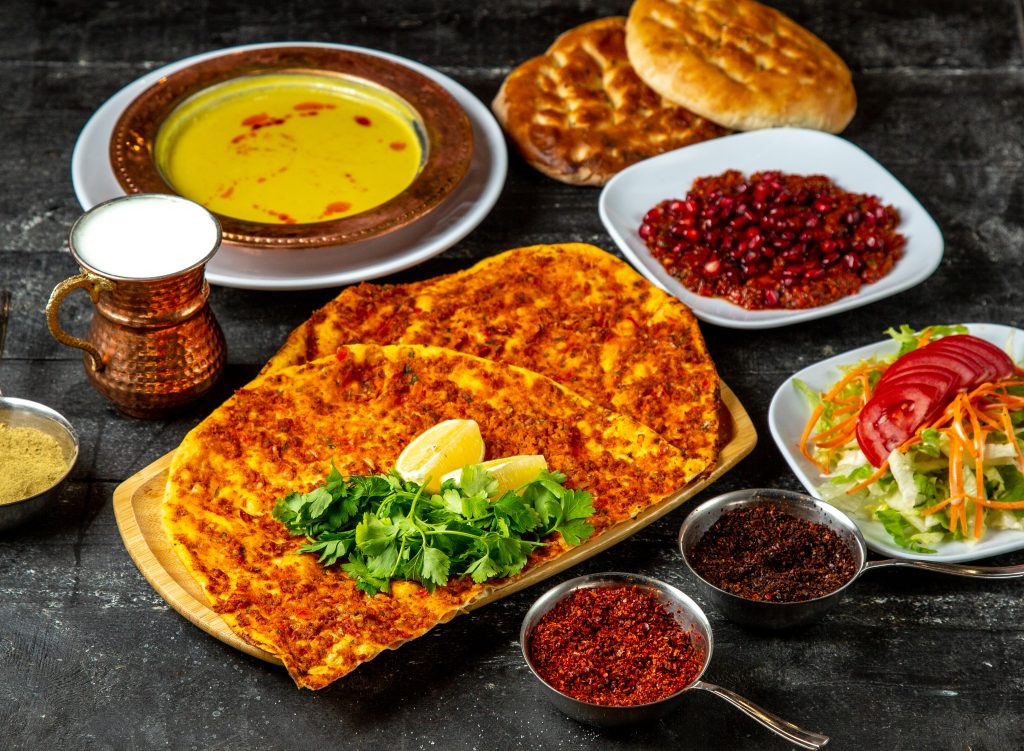Turkish Cuisine are famous the world over for being rich, varied and reflecting Turkish culture. Its uniqueness grows out of the way history, place and culture all combine to produce a widespread range of delicious and healthy recipes.
A Culinary Crossroads in Turkish Cuisine
Turkey is located at the junction of Europe and Asia led to strong influences on its food. Because the Ottoman Empire ruled over the Middle East, Central Asia, the Mediterranean and the Balkans, Turkish food came to reflect their customs. Because of the many cultures, spices, ingredients and cooking styles joined here, their dishes are unique and hard to find elsewhere.
Balanced Use of Spices and Herbs in Turkish Cuisine
Turkish meals are tasty but seldom too much to handle. Food is seasoned with cumin, paprika and sumac and it’s garnished with parsley, mint and dill. The food comes out without being very spicy or heavy because of the use of both Eastern and Asian techniques.
Tea and Coffee Culture in Turkish Cuisine
Turkish tea and coffee help people to build the social environment. Not only does everyone have tea any time of the day in special cups, but Turkish coffee served with sweets is a popular custom.
Turkish Cuisine Famous for Fresh and Seasonal Ingredients
Fresh seasonal plants play a big role in traditional Turkish dishes. Daily, vegetable, fruit, herb and dairy products are bought by locals at the pazar markets. Because Turkish meals use fresh ingredients, you won’t find many heavy sauces or processed additives in them – making the cuisine healthier and more exciting.
Turkish Cuisine: The Tradition of Meze and Sharing
Turkish dishes stand out because meze or a variety of appetizers, is often served together. Most meals are simple shared events that help people socialize. Unlike kids in many Western places who often eat their food separately, a Turkish family meal focuses on coming together as a group and trying all the meal’s different flavors.
Iconic Turkish Cuisine Dishes and Techniques
Turkish cuisine from the famous kebabs grilled to perfection to freshly baked breads like pide and simit offers a variety of unique preparations. Slow-cooked dishes like dolma (stuffed vegetables) and rich desserts like baklava showcase the depth and skill in Turkish cooking.
Final words
Turkish food’s uniqueness lies in its blend of cultural influences, fresh ingredients, communal dining, balanced flavors and historic traditions, making it one of the most distinctive and delicious food cultures in the world.




